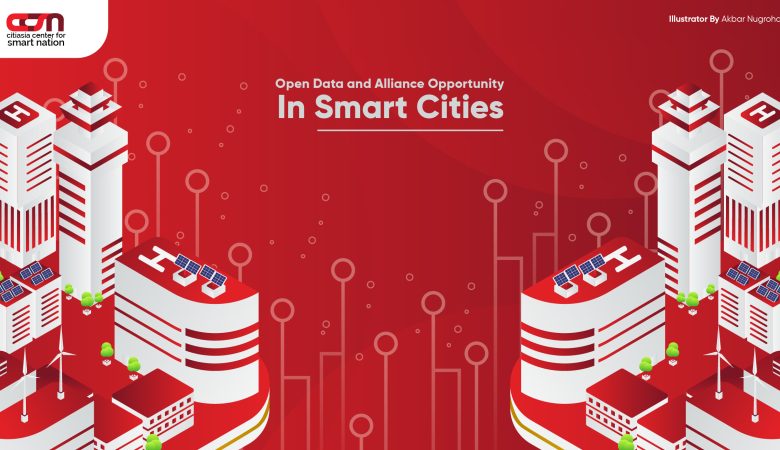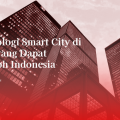Open data has been a cornerstone of the smart city movement for many years. Smart city technologies depend on open data from city authorities and urban services for much of their core functionality – without access to transit data or GIS data, many applications simply could not work. But the need for open data extends beyond functionality, to the governance environment itself. Open data enables more accountability in government and it is crucial to establishing open, contestable markets for technology in city services.
Given the long history of the open data movement, and the crucial role it plays in smart cities, an open data policy is an obvious early candidate for the policy framework of the G20 Global Smart Cities Alliance.
Many local and national governments have adopted open data policies ranging from general declarations of principles (e.g. Open Data Charter) to specific mandates for how data will be treated by the city (e.g. Dubai, Vienna, Seattle). The Alliance has reviewed these examples to develop a model policy for open data.
This policy document can be used right along the value chain – as the basis for your city`s own open data policy and any associated legal instruments; to guide as you move from implementation (e.g. internal operating procedures, team structure, standards to support data publishing and platform development) to adoption (e.g. compliance and participation of stakeholders within government and engagement across the wider data community).
Open data publishing has been established for over a decade, and context matters. It is therefore natural that city authorities will seek to implement variations in this policy based on differences in local needs. Such differences are expected in certain areas, such as: Make the amount of data freely available-Some governments try to keep commercialization options open, while others don't. Accountability Mechanism, All governments need to adapt their reporting requirements to their governance structure.
Accessibility Mechanisms – Some governments have different channels to make data accessible (for example, regional data hubs rather than local government data hubs). Level of Technology Management – Some governments can develop and maintain their own open data portals/platforms, while others can procure solutions or use external agencies. Cities with more resources may have specialized "data bureaus", while other cities may combine data stewardship with existing bureaus that oversee multiple departments.
What leaders say about the Global Smart City Alliance
"Inequality is no longer an option and all departments of government need to work to be central to each of our means," said the United Secretary-General. One Emilia Scythe says. City and local government (UCLG). "We want to bring the voice of all local governments, big and small, to this alliance. When it comes to quality of life and humanity, local governments are the first responders.
India's Smart City Mission "India is at the forefront of this urban transformation, ensuring that our city develops in a smart and sustainable way," said Knarkmal, co-secretary and director of. Is working on. The Smart Cities Mission looks forward to working together with city leaders around the world to share best practices and forge new policy standards for the responsible and ethical use of smart technologies in our cities.”
As urban populations grow, smart city technologies become more and more essential not only to improve the quality of life of citizens but also to simply keep our cities livable, said Chizuru Suga, Head of the World Economic Forum Centre for the Fourth Industrial Revolution Japan.
However, it would be difficult for cities to face the challenges of these technologies to balance economic development and innovation with the protection of the public, alone. We will commit to supporting these cities, through international cooperation and technology governance.
Cities are the solution makers and testbeds of the future, said Jan Vapaavuori, Mayor of Helsinki, Finland. Our ability to forward technological advancements and smart city solutions is directly related to the responsible and ethical use of data and technology. Only by creating a joint trust-based framework can we realize the full potential of smart city technologies for the benefit of all mankind in the future.
Our message has always been that one city is not a market. If we want a scalable, global market for Smart Cities, this can only happen when people come together to agree on common ways of working, to build scalable, interoperable solutions centered around human needs, said Nicola Yates, CEO of Connected Place Catapult.
That`s why the UK invested in leading the establishment of the first set of smart city standards in 2014 and we are pleased to be joining the Global Smart Cities Alliance partnering with the G20 and World Economic Forum to further this mission and the opportunities this can provide to stimulate growth and improve the lives of citizens around the world.
“We`ve seen how data and technology can radically transform how cities design and deliver services to residents,” said Simone Brody, Executive Director of What Works Cities. “They enable us to identify the most pressing needs that residents have and provide tailored solutions to address them. They are among the best tools we have to advance economic mobility, and we are excited to partner with the World Economic Forum to advance this effort.”
“The G20 Global Smart Cities Alliance will be critical to minimize the risks and maximize the benefits of rapid urbanization,” said Victor Pineda, President of World Enabled and CoFounder of Cities for All. “Cities for All and our partners will help ensure that the Alliance can develop new global norms related to access and inclusion. Networks like this can help ensure that we align and can reach the promise of the SDGs and the 2030 Agenda.”
The Centre for the Fourth Industrial Revolution Network brings together more than 100 governments, businesses, start-ups, international organizations, members of civil society and world-renown experts to co-design and pilot innovative approaches to the policy and governance of technology.
Teams in Colombia, China, India, Israel, Japan, South Africa, the UAE, and the US are creating human-centered and agile policies to be piloted by policy-makers and legislators, shaping the future of emerging technology in ways that maximize their benefits and minimize their risks. More than 40 projects are in progress across six areas: artificial intelligence, autonomous mobility, blockchain, data policy, drones and the internet of things.
The Network helped Rwanda write the world’s first agile aviation regulation for drones and is scaling this up throughout Africa and Asia. It also developed actionable governance toolkits for corporate executives on blockchain and artificial intelligence, co-designed the first-ever Industrial IoT (IIoT) Safety and Security Protocol and created a personal data policy framework with the UAE.
Author: Diva Maharani | Illustrator: Akbar Nugroho





